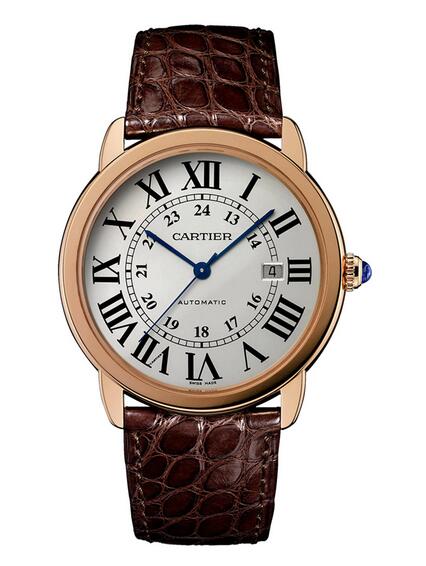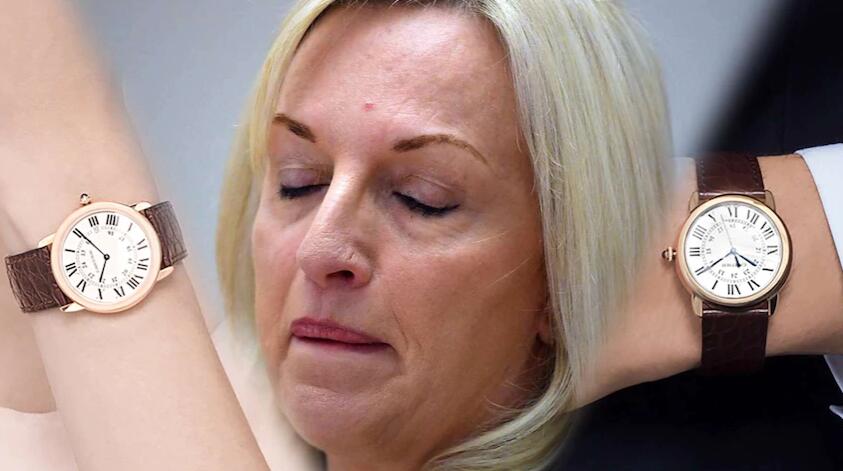An aide of Christine Holgate, the then head of Australia Post, walked into the Cartier jewellers in Melbourne’s CBD on November 14, 2018, and bought four luxury Cartier replica watches.
The AAA US fake Cartier watches — “thank you” gifts for executives who had secured a deal with three banks — were worth, on average, $4,988 each.
That purchase triggered an independent investigation and, ultimately, Ms Holgate’s resignation from the government-owned business she led.

Prime Minister Scott Morrison told Parliament last year that news of the gifts had appalled him. “It’s disgraceful and it’s not on,” he said.
Yet in the same year Ms Holgate gave her staff those rewards, at least 900 federal public servants received a personal performance bonus worth more than high quality replica Cartier watches.
Some received bonuses so large they could buy dozens of the cheap Cartier copy watches, with plenty of cash to spare.
But are these bonuses similar to the Swiss made Cartier replica watches gifts, and are ministers equally concerned about how their own departments are rewarding staff?
As with the perfect Cartier super clone watches, there is little oversight of public service bonuses
Last month, the investigation of Ms Holgate’s fake Cartier watches wholesale found no indication of dishonest or corrupt use of Australia Post funds.
However, it noted the gifts were “inconsistent with public expectations” of how public money should be spent, and found a lack of clear policies in support of such rewards.
Performance bonuses in the Australian Public Service (APS) — whose workplaces usually report directly to ministers — are also entirely lawful.
However, there is a lack of guidance around how the APS uses bonuses, and no requirement that decisions to award them be justified publicly.
In 2018 — the year of the replica Cartier watches online shop— federal ministers’ delegates approved $40.8 million worth of performance bonuses for 15,633 APS staff, mostly to middle managers.
Precise data is unavailable but, at minimum, 919 APS employees received a bonus worth more than one of Ms Holgate’s watches. An ABC analysis of APS remuneration reports, however, suggests the number of staff whose bonus passed the Swiss movements Cartier fake watches threshold was probably closer to 1,750.

And these are just the public servants. Many other Federal Government employees also receive bonuses, though they are not reported centrally.
The sums are usually small compared with bonuses in government-owned businesses, such as Australia Post — Ms Holgate’s bonus in that year, for example, was $831,000. And they are trifling compared to some private sector bonuses.
‘They’re a beauty contest — nothing more’
One former top federal bureaucrat, ex-Defence Department chief Allan Hawke, was appalled by the idea of public servants receiving pay bonuses — so he banned them in his workplace in the 1990s, when such payments were widely encouraged.
He told the ABC this week that the “total lack of transparency” around bonuses was among his main concerns.
“They’re a beauty contest — nothing more,” he said.
Dr Hawke became so frustrated by the prevalence of performance payments in government that, when he retired, he spent his entire valedictory speech urging his colleagues to ditch them.
“You simply cannot justify them,” he said.
“To pay someone a bonus is anathema to teamwork and the other things you’re trying to promote.”
Do bonuses actually work in the public sector?
Business executives generally expect bonuses, which are usually tied to specific, measurable outcomes, such as sales or market share.
In the APS, the biggest bonuses are paid by the Future Fund Management Agency — a government workplace that is, in effect, an investment firm. (The agency’s then chief executive, David Neal, pocketed a bonus of $770,000 in 2018-19.)
But unlike the Future Fund’s returns, most public sector work outcomes are almost impossible to measure — which can make awarding bonuses a subjective decision.
The University of Melbourne’s Janine O’Flynn, a professor at the School of Government, has advised the federal bureaucracy on staff performance in recent years.
She said there was no consensus on whether bonuses worked.
“The international evidence, over many years, shows a range of challenges with this approach,” she said.
“It’s strange, for example, to be encouraging collaboration and working in a team, but using individual rewards for work that relies on others.
One of the best-known scholars of public sector performance, Indiana University professor James Perry, summarised his findings simply: “It’s the mission — not the pay cheque — that motivates most public servants”.
The Coalition once supported bonuses. Now, it’s questioning them
Pay bonuses have been steadily falling out of fashion in the APS for more than a decade, partly as a result of a Rudd government push to eliminate them.
In 2007, the last year of the Howard government, seven in 10 senior executive public servants received the payments (the average was about $11,300).
After Labor won office that year, Kevin Rudd abolished performance bonuses for department heads — and payments for other APS staff have become increasingly rare ever since.
In 2019, fewer than one in 20 senior bureaucrats received a bonus (worth about $31,800 on average).
Today, the Coalition is less supportive of financial incentives than it once was.
Shortly after the 1:1 Cartier replica watches scandal erupted in Parliament, Mr Morrison’s assistant minister, Ben Morton, announced a formal review of senior public servants’ bonuses.
Mr Morton told the ABC the review’s purpose was to encourage accountability, transparency and value for money.
Meanwhile, the Labor Party remains uncomfortable with bonuses in the public sector.
Its finance spokeswoman, Katy Gallagher, said the payments were sometimes appropriate but should be used “selectively and always transparently, and with a clear link to productivity and performance”.
“Excessive, arbitrary or widespread bonuses are out of step with community expectations,” she said.
Senator Gallagher said she was concerned by “a few large bonus payments made in 2019” and would seek explanations for them.
“There should be a more consistent, evidence-based approach across different agencies in paying bonuses,” she said.
The Government’s review of bonuses is expected to be completed in March.
Given that $5,000 AAA Cartier fake watches awarded to an executive in a government-owned business was “inconsistent with public expectations”, it’s hard to see how the much-larger bonuses given to staff who work directly with ministers will receive the tick of approval.